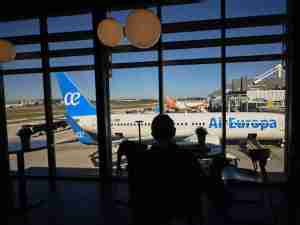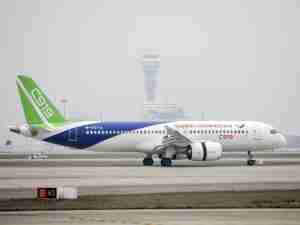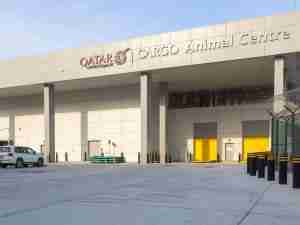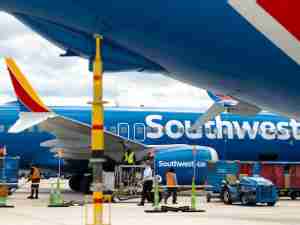Lufthansa Cargo and the owner-managed logistics company Rцhlig Logistics are joining forces in a partnership for climate protection and will offer customers a sustainable transport service on selected routes with immediate effect. In doing so, Rцhlig Logistics relies on investments in certified climate protection projects in order to effectively compensate for CO2 emissions that arise during the transport of airfreight. Rцhlig Logistics is initially committed to decarbonising air freight on a total of four selected freight routes. This is expected to offset around 1,000 tonnes of CO2 emissions.
Philip W. Herwig, Managing Partner at Rцhlig Logistics, explains: "Rцhlig is committed to promoting sustainability in all its business activities and decision-making processes. Therefore, we are particularly pleased to be a partner of Lufthansa Cargo and to take a measurable step in our sustainability efforts with this commitment. With immediate effect, we are offering our customers CO2-neutral freight transport on selected routes. In doing so, 100 per cent of the CO2 emissions are offset by supporting projects of the international and non-profit climate protection organisation myclimate."
"We are delighted to have Rцhlig Logistics as another partner at our side, actively contributing to make air freight transports more sustainable. Our goal is to become the most sustainable air cargo airline. That is why we are investing in a modern fleet, innovations such as AeroShark, which reduces air resistance, and the latest generation of lighter loading equipment. These investments help to significantly reduce our CO2 emissions. On the other hand, we offer our customers sustainable transport solutions that reduce the remaining carbon footprint. In addition to Sustainable Aviation Fuel, this also includes offsetting CO2 emissions by investing in high-quality climate protection projects," explains Dorothea von Boxberg, CEO at Lufthansa Cargo.
On the following routes, all CO2 emissions of freight carried on behalf of Rцhlig Logistics are 100 per cent offset:
Offsetting CO2 through the promotion of myclimate projects
- from Frankfurt/Main (FRA) to Atlanta (ATL)
- from Frankfurt/Main (FRA) to Mexico City (MEX)
- from Frankfurt/Main (FRA) to Shanghai (PVG)
- from Hong Kong (HKG) to Frankfurt/Main (FRA)
CO2 emissions that have already been emitted can be nullified by means of high-quality offsetting projects. This works because the climate is only changed by the amount of net greenhouse gases. It doesn't matter where greenhouse gases are emitted and where they are saved. For example, the projects replace fossil energy sources with renewable energy or energy-efficient technologies, thus reducing CO2 emissions, such as using solar cookers instead of firewood. Another option is to protect endangered forests, whose trees extract CO2 from the atmosphere over their lifetime, convert it and store it as carbon. The amount of emissions saved from the projects is calculated and can be passed on to companies in the form of emission reduction credits - so-called certificates - in quantities appropriate to their needs. On the basis of the certified CO2 savings or reductions, there is thus the possibility of offsetting CO2 emissions that arise, for example, in the context of freight transport. Another advantage is that the compensation mechanism via high-quality projects not only includes climate protection measures that demonstrably save CO2, but the projects also always bring local benefits for the population and the environment. Jobs are created, infrastructures improved or health risks reduced, biodiversity protected or educational opportunities improved.
Rцhlig Logistics relies on a selection of ten carbon offset projects curated by the Lufthansa Group and run by the non-profit organization myclimate, which applies only the strictest, independent quality standards, such as Gold Standard and Plan Vivo, when selecting and designing carbon offset projects. The offsetting is handled via Compensaid, the Lufthansa Group's digital platform for CO2-neutral flying.
The following projects are supported within the framework of compensation:
- Brazil: Wood-Based Biomass instead of Gas Boiler in Brazil
- Brazil: Electricity from FSC Wood Waste in the Amazon
- Burundi: Efficient Cook Stoves for Returnees in Burundi
- India: Biogas plants for 9,000 Familie in India
- Kenya: Savings Groups Enable Women to Afford an Efficient Cook Stove in Kenya
- Madagascar: Back to the Green Island with Efficient and Solar Stoves in Madagascar
- Nicaragua: Community Reforestation in Nicaragua
- Nigeria: Efficient Cook Stoves reduce Emissions in Nigeria
- Ruanda: Efficient Cook Stoves save Habitat for the last of the Mountain Gorillas in Rwanda
- Tanzania: Protection of Tanzanian Forests for Indigenous Peoples, Wildlife and the Climate











